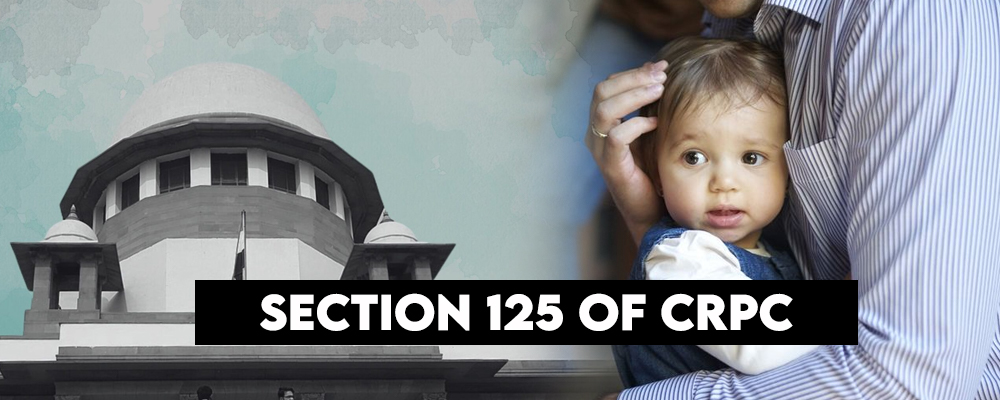While dealing with a criminal revision filed in the case of Mukti v The State of U.P., the Supreme Court observed that Section 125 CrPC is enacted for social justice and especially to protect children. women and old parents. The Court further held that this Section falls under the Article 15(3) and is reinforced by Article 39 of the Indian Constitution.
The Bench of Justice Shekhar Kumar Yadav observed that this provision gives effect to the natural and fundamental duty of a man to maintain his parents, wife and children if they are unable to do so themselves.
The criminal appeal was filed by Mukis against an order filed by Family Court, Aligarh where he was ordered to pay a monthly maintenance of Rs.3000 to his wife and to pay Rs 2000 per month to his son from the date the application for maintenance was filed.
The petitioner argued before the Court that he is unable to pay the amount and requires some more time. Also, the wife has been staying at the home of her parents without any reason.
The Court noticed that the wife was not able to maintain herself and her husband asked her to leave as she was not able to fulfill the demands for dowry made by him.
The Court observed that the decision of the Family Court was correct, however keeping in view the financial conditions of the husband, he was allowed by the Apex Court to deposit the pending maintenance amount in three equal monthly installments within three months while dismissing the petition.
Section 125 CrPC-
Section 125 of CrPC provides for the maintenance of wife who are unable to maintain themselves, however the exception to the provision is that the respondent should be able to pay such maintenance. Also the wife should not be living in adultery or living in separation with her husband without sufficient reason.
In Savitaben Somabhai Bhatiya v State of Gujarat, it was decided by the Court that Section 125 of the Code was enacted in the interest of the wife, to take the benefit under Section 125(1)(a) she has to prove that she is the wife of the person concerned.
The wife is not entitled to maintenance under Section 125 of CrPC in following conditions-
- If she is living in adultery
- If she refuses to live with the husband without any sufficient cause
- If they are living separately by mutual consent.
Under Section 125 of CrPC, the court can also order the payment of interim maintenance, i.e. while the proceedings are pending in the court of law.
The purpose of the Section 125 CrPC was explained in the case of K. Vimal v K. Veeraswamy,it was observed by the Court that the Section was provided for achieving social purpose. It was held in this case that if the wife has lived like a wife and the husband has treated her like a wife for all the years before the separation,then the wife cannot be denied maintenance by the husband.
In the case of Aarif v Shajida, an application for review was filed under Section 397 and 401 by the petitioner against a judgment of the lower court where he was asked to pay Rupees 3000 for maintenance of his wife. It was contended by the husband that his wife had deserted him time and again without any sufficient reason. The Madhya Pradesh High Court allowed the application for revision.
Essential conditions for maintenance under Section 125 could be summarised as-
- Husband should have sufficient means to maintain
- Husband should have neglected or refused to maintain the wife
- The person claiming maintenance should be unable to maintain himself or herself
It could be concluded that Section 125 provides for the dependents who do not have means and resources to maintain themselves. The facts of the cases vary from case to case and the court decided accordingly.
Lead India provides a wide pool of experienced lawyers who deal issues related to family law, criminal cases, divorce, maintenance, etc. Legal assistance and guidance is also provided related to these issues.





 Talk to a Lawyer
Talk to a Lawyer